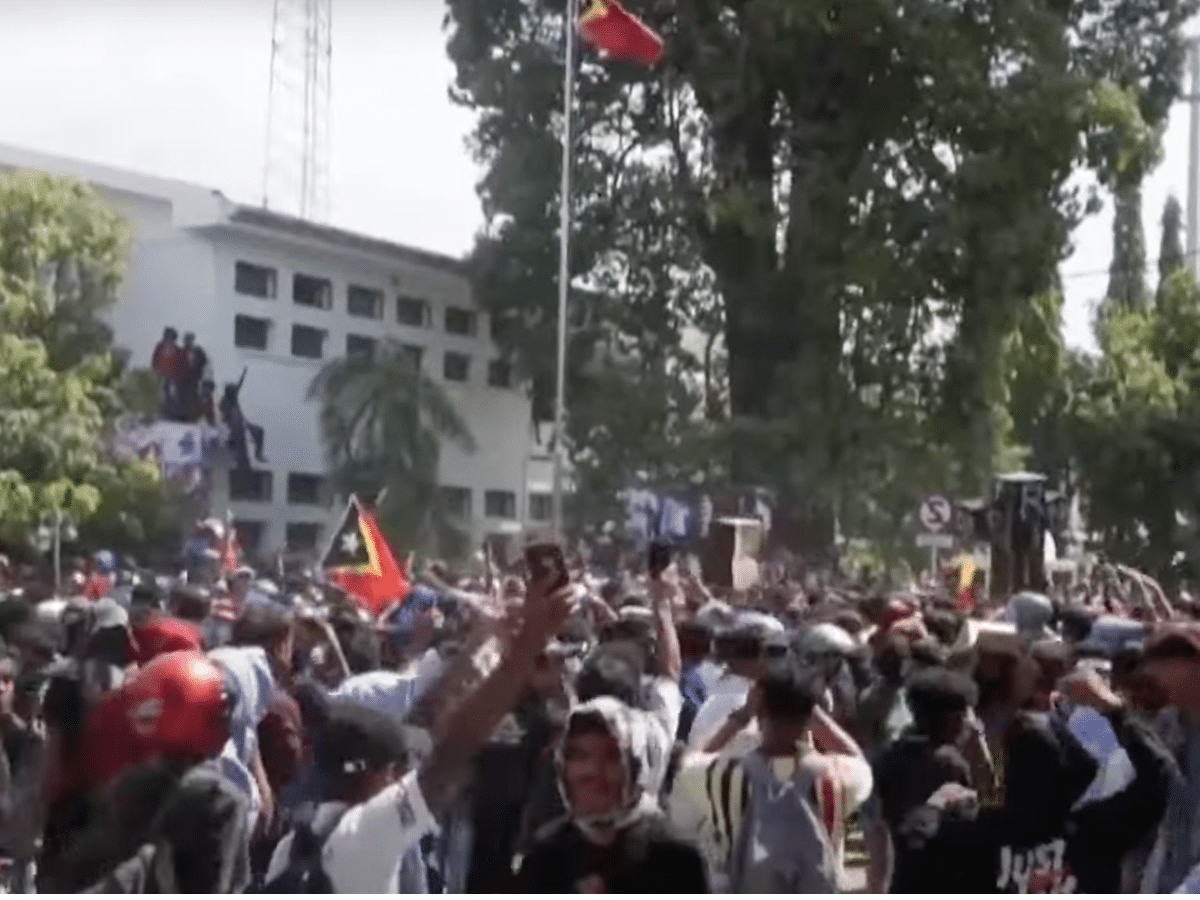Following large-scale youth-led protests in Indonesia and Nepal, three days of demonstrations have rocked the Southeast Asian island nation of Timor-Leste.
The student-fronted protests began on Tuesday 16 September. They were triggered by parliamentary plans to buy MPs new luxury sports utility vehicles (SUVs). However, they soon expanded to include criticism of lawmakers receiving massive lifetime pensions.
Anger at inequality in Timor-Leste
Both the cars and the pensions stoked public anger at the massive wealth inequality of Timor-Leste. The average income was around just £2,200 GBP in 2021, according to government estimates. Its lawmakers make some 12 times that amount, at around £26,000 as of 2023. A demonstrator told BBC News of her anger at MPs “[wanting] to buy luxury cars for work while their people are still suffering”.
The £3mn purchase of 65 Toyota Pravo SUVs – one for each MP – was approved by Timor-Leste’s parliament last year. The plan was quickly dropped by unanimous vote just hours after the protests began on Tuesday. But by then anger at the MPs’ excesses had set in; one protester told AFP:
Rumours are that the cars are already on the way. So this is why all of these students and myself are here today — to make sure my tax money is not going in the… wrong direction.
The demonstrators burned government cars and threw rocks at police, who responded by firing tear gas into the crowds. One estimate held that 2,000 protestors took to the streets of the capital, Dili, on Wednesday.
‘Injustice’
Cezario Cesar, one of the protest’s leaders, explained that:
We started this protest… when they decided to buy the cars…
People don’t have access to good education, water and sanitation… we have a lack of facilities, but they’re still creating so many laws to benefit themselves.
We think it’s injustice.
Cesar also pointed out that there have been regular demonstrations against MPs awarding themselves free cars since the early 2000s. After lawmakers scrapped the plans for the new cars on Tuesday, they issued a statement that they must “adopt administrative and financial measures aimed at maintenance and efficient use” of their existing vehicles.
After a third consecutive day of protest, the legislators also dropped the proposal to grant themselves lifetime pensions. The decision marks a victory for the people of Timor-Leste, and – together with the uprisings in Nepal and Indonesia – it demonstrates the level of change that can be brought about by swift and effective protest.
Featured image via YouTube screenshot/WION













